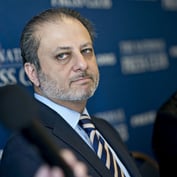NEW YORK (HedgeWorld.com)–Hedge fund returns in August pulled back from the gains seen in June and July, but still ended the month up 0.9%, according to the Hennessee Hedge Fund Index.
The nearly 1% return for the month continued a string of positive-return periods dating back to May. For the year, the Hennessee index is up 4.5%, better than the Standard & Poor’s 500 stock index, which is up 1.93% through Aug. 31; the Russell 2000, up 3.07% for the year; and the Nasdaq Composite, which is down 1.07% year-to-date.
Hedge fund returns in August were driven primarily by short sellers, who posted a 3.34% gain, and global macro managers, who earned 1.24%, according to the Hennessee Index, compiled by the Hennessee Group LLC, a hedge fund advisory firm. Rising oil prices caused sell-offs in equity markets, which drove prices lower and helped the shorts. The S&P 500, the Dow Jones Industrial Index, the Russell 2000 and the Nasdaq were all down in August. Only the MSCI Europe Australasia Far East Index was up (2.26%).
“Hedge funds, as an asset class, continue to outperform broad market averages in equities and bonds,” said Charles Gradante, managing principal of the Hennessee Group, in a statement. “Fed tightening continues to worry most managers as they fear the Fed may have gone too far. Nonetheless, higher cost of capital has helped fundamentally driven stock pickers as ‘noise’ from speculation and momentum traders declines.”
Global macro managers, Hennessee said in its analysis, benefited from trading around rising oil prices and currencies, especially the dollar, which fell against the yen and the euro. According to Hennessee, managers were mindful of the oil and gas supply disruption caused by the Hurricane Katrina, but traded more on the fundamental knowledge that prices are being driven more by long-term high demand than by short-term supply shortages.
Macro managers also found trades to be had around the U.S. Treasury yield curve, which flattened through most of August before becoming more steep on news that an economic slowdown following Hurricane Katrina could prompt the Fed to halt its rate increases for a time.
Foreign elections may play a role in market movement, Mr. Gradante said. “… [E]lections in Japan and Germany are expected to create volatility in bond and equity markets that some macro managers are positioning to profit from.”








 September 14, 2005 at 08:00 PM
September 14, 2005 at 08:00 PM










